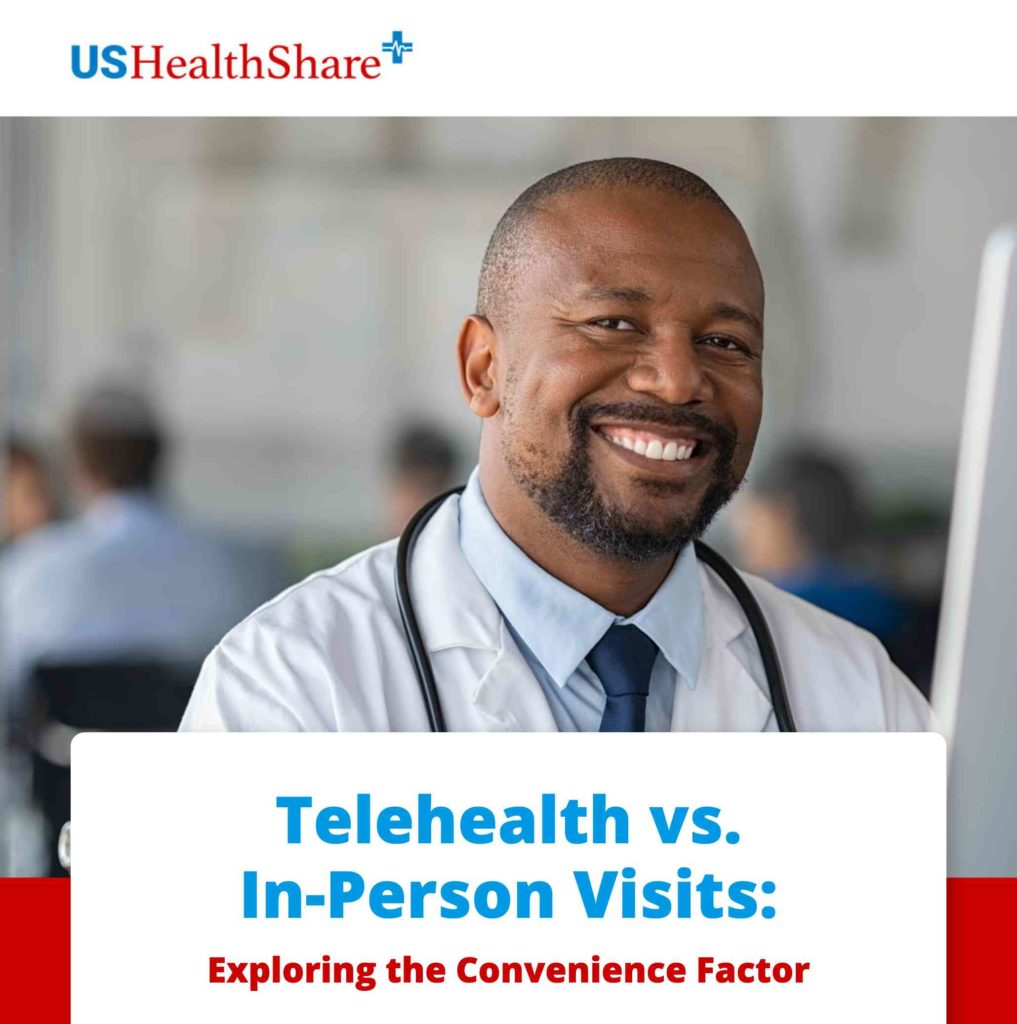Medical Share Programs

Here are some quick statistics to give you a picture of the current healthcare environment:
2 Million
The increase in the number of Americans without insurance in 2018, according to the U.S. Census Bureau.
8.5%
Share of the US population who went without medical insurance in 2018, a 7.9% increase from the year before.
One-fifth
Share of the economy that the total US health spending that is forecasted to increase to by 2025.
$ 3.6 Trillion
Amount that spending on health care in the US has increased to in 2018, an increase of 4.6% from the year before, fueled by an increase in the cost of private health insurance plans.

1 Million +
Number of Americans participating in medical sharing programs.
Medical Sharing 101: What You Need to Know
When you’re contemplating choosing a medical share program, there are some basics you should know. The following questions and answers should help you make a wise choice.
- What are medical share programs?
- Is a medical share program right for your unique circumstances?
- Are medical share programs a form of insurance?
- What are the benefits of choosing a medical share program?
- What types of medical expenses can you pay with medical share programs?
We have the answers.
1. What Are Medical Share Programs?
Medical share programs offer members a unique way to both obtain financial help to pay for health care expenses and help their fellow neighbors obtain the same assistance. These ministries are made up of like-minded people who share health care costs amongst themselves, helping to minimize the financial burden that often comes with receiving medical services.
The members of medical share ministries share a common belief system and agree to be a part of an organization that is meant to help members facilitate sharing of costs.
Is a Medical Share Program Right for Your Unique Circumstances?
Medical share programs can work for a variety of people in many different circumstances; however, generally speaking, here are some of the common requirements for eligibility in a medical share program:








Are Medical Share Programs a Form of Insurance?
No, medical share programs are not insurance. They differ in a number of important ways. Here’s a chart that highlights some of these ways:
| For-profit | Non-profit |
|---|---|
| Health Insurance Plans | Medical Health Sharing Programs |
| ACA policies mandate that all individuals with pre-existing medical conditions must be accepted. | ACA policies do not mandate medical health sharing programs. Eligibility for plan acceptance is based on the specific medical sharing program’s standards. |
| Members with pre-existing conditions must be accepted in order to comply with ACA policies | Members are expected to share common faith beliefs and adhere to lifestyles that reflect those beliefs. |
| ACA policies mandate that all individuals with all lifestyle choices must be accepted. | Members must share the common belief system of the organization and maintain certain lifestyle choices that comply with those beliefs. |
| Insurance companies guarantee coverage of specific medical services and procedures, amounts paid out, and what policyholders pay according to their specific plan. | Medical sharing programs make no guarantees regarding sharing of specific medical services and procedures. Payment eligibility is dependent on the specific medical sharing program’s guidelines. |
| Signed contract provisions dictate how claims are processed. | Share requests for members with eligible medical needs are submitted to the program membership for sharing and payment to providers. |
| Explanation of Benefits (EOB) is provided to policyholders when claims are processed. | Explanation of Share (EOS) is provided to members when Share Requests are processed. |

Telehealth vs. In-Person Visits:
What's Best for You?
Download our free PDF guide to learn about your options.
What Are The Benefits of Choosing A Medical Share Program?
Health sharing ministries are not necessarily for everyone, but there are specific demographics that are better suited for participating in health share programs.
These may include people who meet the following criteria:







What Types of Medical Expenses can you pay with Medical Share Programs?
Medical share programs offer a wide range of medical services and features for eligible members, including:
- Annual wellness visit and checkup.
- Telehealth services.
- Doctor visits for both general practitioners and specialists.
- Urgent care.
- Emergency and hospitalization.
- Diagnostic lab work.
- Speech and occupational therapy.
- Pharmacy and prescriptions.
Please note that not all medical share programs offer all these features. Check with the program you choose for specific details about what services are eligible for sharing with the medical share program.
Frequently Asked Questions
Medical sharing or Christian healthcare ministries are relatively straightforward in the way they work. People of faith apply to be a member of the Christian healthcare share program and meet certain eligibility requirements. Once accepted, members choose the share program that best meets their medical and financial needs. Members then make a monthly contribution to the program based on the program chosen and receive a member ID card that reflects per-visit consult amounts and prescription costs from providers within the contracted networks. Before receiving medical services, Members present their member ID to the In-network provider and then pay any per-visit consult fee. When a member receives services for an eligible medical need, benefits are applied and a share request is submitted to the membership. Eligible medical needs are handled by the program in accordance with specific program guidelines.
Health sharing, or Medical sharing and Christian healthcare ministries, have been around since the 1980s. When the Affordable Care Act (ACA) was enacted many of these medical sharing programs were NOT subject to the individual mandate tax penalty, as they qualified as health coverage. With the 2019 reversal of the Obamacare tax penalty to $0, these health share programs, including emerging ministries, are exploding in popularity.
Although Christian health sharing is not insurance, it is recognized by the HHS as “coverage” and is a legitimate alternative to health insurance for many individuals and families. Members who choose health sharing are clearly advised that these programs are not health insurance.
While medical health sharing programs help with healthcare costs, medical health sharing programs are not insurance plans. Medical health sharing entities are non-profit, charitable organizations that are designed to help members pay for medical expenses by utilizing funds from other members.
Health insurance plans must comply with the Affordable Care Act. This means that insurance health plans must accept all sorts of people with all sorts of medical issues. This can drive up the total cost of insurance plans and put comprehensive plans out of financial reach for many Americans.
Medical health share programs, on the other hand, are not bound by ACA requirements and therefore can be more selective in their approval of members, which can ultimately result in cost savings for the entire membership.
Medical health share plans or Christian healthcare ministries are relatively straightforward in the way they work. People apply to be a member of the health share program and often need to meet certain eligibility requirements. Once accepted, members choose the share program that best meets their medical and financial needs. Members then make a monthly contribution to the program based on the program chosen. Before receiving medical services, Members present their member ID to the in-network provider and then pay any per-visit consult fees. When a member receives services for an eligible medical need, benefits are applied and a share request is submitted to the membership. Eligible medical needs are handled by the program in accordance with specific program guidelines. Health care sharing is not insurance, but the plans can count as insurance under the Affordable Care Act (ACA).
Medical health share plans are relatively simple in the way they work. People apply to be a member of the medical healthcare share program and meet certain eligibility requirements. Once accepted, members choose the share program level that best meets their medical and financial needs. Members then make a monthly contribution to the program based on the program chosen. When receiving medical services, Members present their member information to the In-network provider and pay any per-visit consult fee. When a member receives services for an eligible medical need, benefits are applied and a share request is submitted to the membership. Eligible medical needs are paid by the program in accordance with specific program guidelines.
Medical health share plans or Christian healthcare ministries are relatively straightforward in the way they work. People apply to be a member of the health share program and often need to meet certain eligibility requirements. Once accepted, members choose the share program that best meets their medical and financial needs. Members then make a monthly contribution to the program based on the program chosen. When receiving medical services, Members present their member ID to the in-network provider and then pay any per-visit consult fees. When a member receives services for an eligible medical need, benefits are applied and a share request is submitted to the membership. Eligible medical needs are handled by the program in accordance with specific program guidelines. Health care sharing is not insurance, but the plans can count as insurance under the Affordable Care Act (ACA). Health share plans offer healthcare with a range of benefits that are typically more affordable and more flexible.
There are many medical health share providers each with varying programs options and benefits. Compare health share reviews and programs here.


